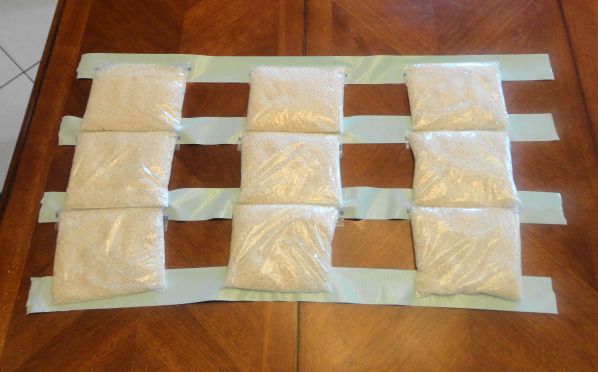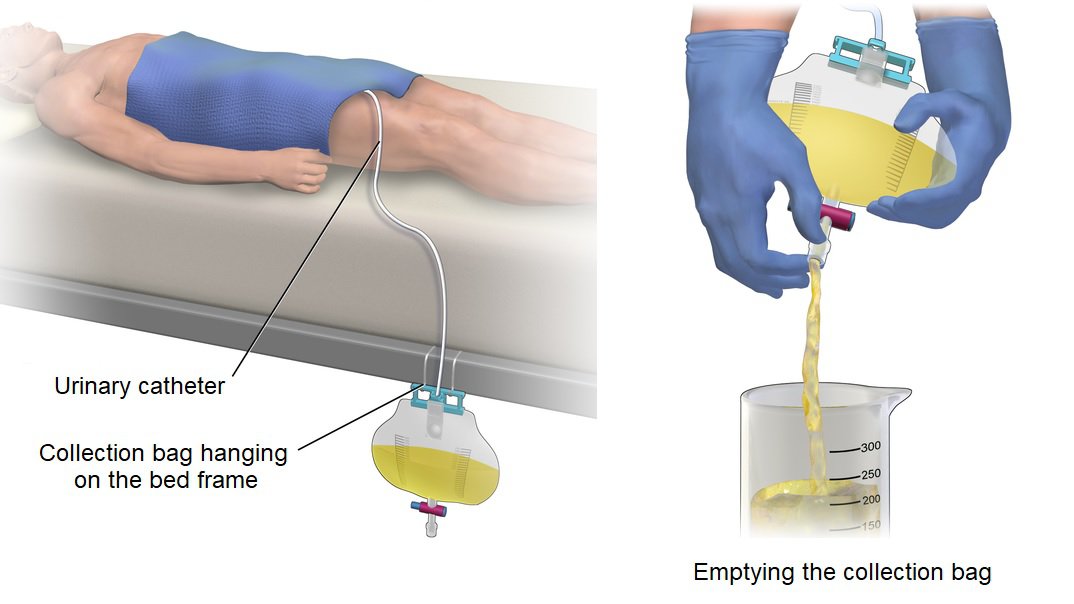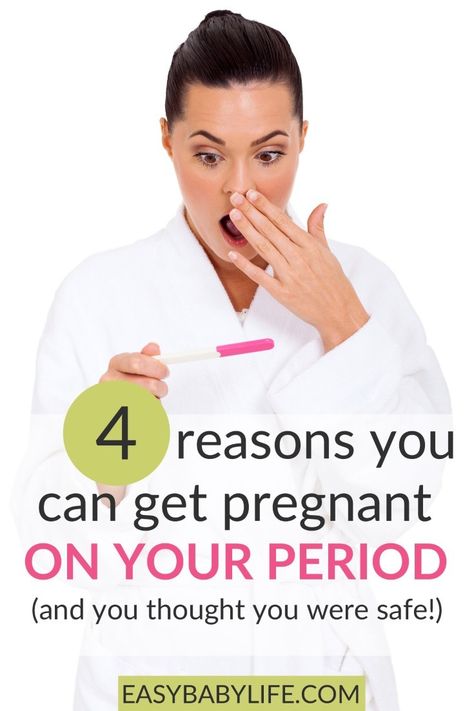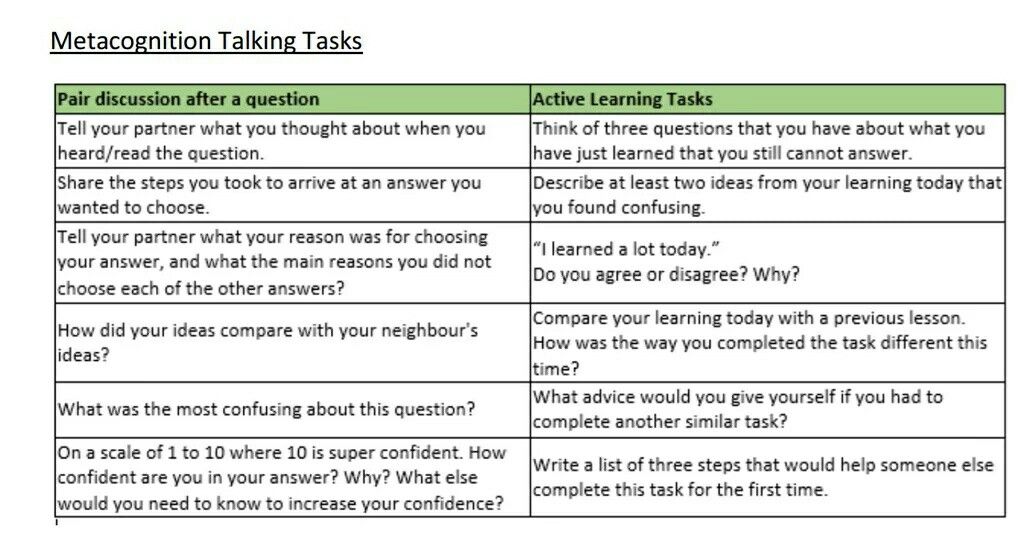Rubbing belly during early pregnancy
Why Do Pregnant Women Rub Their Belly & What It Means
Many women tend to rub, pat, touch, or massage their bellies while pregnant as a way to feel close to their babies. If you’re pregnant and can’t keep your hands off of your growing baby bump, then you must be wondering whether or not it’s okay for you to keep rubbing your belly. Rubbing the belly while pregnant makes a woman feel good instantly as she feels that she is communicating with her baby, but is it okay to do so? Let’s find out!
Why Does a Woman Rub Her Belly When Pregnant?
Touch is one of the best ways to connect with an unborn child. It is very natural and common for a pregnant woman to constantly touch her belly as it is comforting, and rubbing and stroking the belly may even soothe the baby when the baby is moving or kicking too much. Another reason why a pregnant woman may rub her belly is because of skin irritation. As the pregnancy bump increases in size, the skin stretches making it tighter. This may make a pregnant woman a tad bit uncomfortable; therefore, rubbing may help in easing such pregnancy woes.
What Does It Indicate When a Pregnant Woman Rubs Her Stomach?
Rubbing or holding the belly while pregnant is very normal and common for the expectant mommies, and it may mean different things to different women. Where some women may rub their bellies to soothe the tiny ripples going inside their bellies, others may do it to ease their discomfort. It’s an unsaid language of love and communication between a mother and her unborn baby. However, it may become a cause of concern if a pregnant woman holds her belly because of some pain. If any such situation arises where a pregnant woman experiences any kind of discomfort or pain, it is advisable to seek medical assistance at once to avoid any kind of fatal complications.
Can Your Baby Tell You When to Rub Your Belly?
While your baby cannot tell you when you should rub your belly, he may let you know that he is enjoying it by moving in your belly or kicking your belly. As a mom-to-be, you might wonder if your baby enjoys it when you rub your belly. The answer to this is that if you can feel your baby twisting and turning inside your belly, chances are that he might be doing so because he can feel your touch and is probably enjoying it. On days when your baby moves too much or kicks a lot in your tummy, your soothing strokes may even help calm him. But there’s no research to prove that a baby enjoys when the mother rubs the belly!
The answer to this is that if you can feel your baby twisting and turning inside your belly, chances are that he might be doing so because he can feel your touch and is probably enjoying it. On days when your baby moves too much or kicks a lot in your tummy, your soothing strokes may even help calm him. But there’s no research to prove that a baby enjoys when the mother rubs the belly!
Can Pressing Your Belly Lead to a Miscarriage?
Abdominal contacts during pregnancy are usually harmless, which means that doing household chores and handling pets at home may not pose a threat to your pregnant belly. While pregnant, you must take due precautions to keep yourself safe from any kind of abdominal trauma as it may sometimes lead to a miscarriage. Being hit on the abdomen, a fall, and other such injuries may not lead to a miscarriage, but may result in placental abruptions. In case these abruptions happen during the second or third trimester, it may result in a miscarriage.
Does Rubbing the Pregnant Belly Feel Good?
Apart from feeling connected with the baby inside the womb, rubbing the belly is a great way to relax during pregnancy. Massaging the belly, using a good massage oil or lotion is a great idea. Many women use ointments or creams to soothe their dry and stretchy abdominal skin and to prevent the occurrence of stretch marks. However, there is not much conclusive evidence of using creams and ointments to reduce stretch marks. Nevertheless, rubbing the belly during pregnancy can be relaxing. Apart from feeling great, it can also make the skin soft and supple. Aroma oils such as lavender, ylang-ylang, and other such oils can be mixed with any carrier oil and used for massaging the belly. You can also ask your partner to give you a gentle massage; it’s a great way to help him bond with the baby!
Massaging the belly, using a good massage oil or lotion is a great idea. Many women use ointments or creams to soothe their dry and stretchy abdominal skin and to prevent the occurrence of stretch marks. However, there is not much conclusive evidence of using creams and ointments to reduce stretch marks. Nevertheless, rubbing the belly during pregnancy can be relaxing. Apart from feeling great, it can also make the skin soft and supple. Aroma oils such as lavender, ylang-ylang, and other such oils can be mixed with any carrier oil and used for massaging the belly. You can also ask your partner to give you a gentle massage; it’s a great way to help him bond with the baby!
How to Rub Your Belly in the Correct Way
Massaging the belly during pregnancy may help you relax, induce better sleep, and may even help in improving blood circulation in the abdominal region. However, you may want to avoid massaging your belly during the first trimester as it can worsen your nausea or morning sickness. There are many benefits of rubbing your pregnant belly; however, the trick is to do it correctly. Here’s how you can massage your pregnant belly the right way:
There are many benefits of rubbing your pregnant belly; however, the trick is to do it correctly. Here’s how you can massage your pregnant belly the right way:
- The first step is choosing a good oil or cream. Choose one with vitamin E or you can use any good essential oil. Use a carrier oil when using essential oils for massaging. If in doubt get in touch with your midwife or doctor to know what kind of oil you should use.
- Use gentle and soft strokes as you take your hands around your belly region. Refrain from using firmer or hard strikes around your pelvis.
- Start massaging from the sides as you gently guide your hands towards your belly button. Use small circular strokes as you make small ‘O’s and ‘C’ with your palms.
- Keep a tab on your breathing pattern to get the maximum benefit from massage. Take slow and deep breaths and feel as if you and your baby are in sync with each other. Try and imagine yourself holding your little bundle of joy in your arms as you caress your baby bump while massaging.

- If your partner helps you in massaging, make sure you lie down on your side. Use pillows to support your bump and knees for maximum comfort. You can sit upright too for the massage.
If you want to connect with your unborn baby or wish to send that little love note to your baby, do it through your gentle and loving touch as it is one of the most powerful tools that will help you stay connected with your baby. Massaging your belly duing pregnancy is also a wonderful way to connect your baby and getting some much needed relief from the dry and itchy skin. Make sure you get in touch with your doctor if you are unsure about which oil or cream to use while massaging your belly. Rubbing your belly may become an unconscious move as your pregnancy progresses, and that is just your instinct to connect with your little one!
Also Read:
Home Remedies to Treat Itching While Pregnant
Using Coconut Oil for Stretch Marks While Pregnant
Reasons for Itching on Stomach in Pregnancy
The Awesome Power of Abdominal Massage During Pregnancy — Wildish ~ Organic Products For Pregnancy & Postpartum Health
Your Abdomen During PregnancyDuring pregnancy your overall blood supply increases by 30-50%. You need this blood as your body and organs accommodate for a growing baby. The kidneys, respiratory, GI systems, and liver expand as your pregnancy progresses. You may notice this in your circulatory system, as you see more blue surface veins on your body.
You need this blood as your body and organs accommodate for a growing baby. The kidneys, respiratory, GI systems, and liver expand as your pregnancy progresses. You may notice this in your circulatory system, as you see more blue surface veins on your body.
Your digestion changes as your organs become more crowded, in some cases, you can’t eat food you could before your pregnancy. Your skin glows, or maybe you get some new rashes or itchy skin. These are all normal occurrences and signs of a body that is changing to support the growth of a human being.
Abdominal Massage helps to direct that additional blood supply to the digestive and reproductive organs where it can deliver nutrients that are the basis for optimal functioning amidst the stresses that your body is now facing.
But, it’s about more than just directing blood flow to the parts of the body that need it most. There’s a powerful hormonal and emotional component to abdominal massage that make it a tremendously useful self-care practice.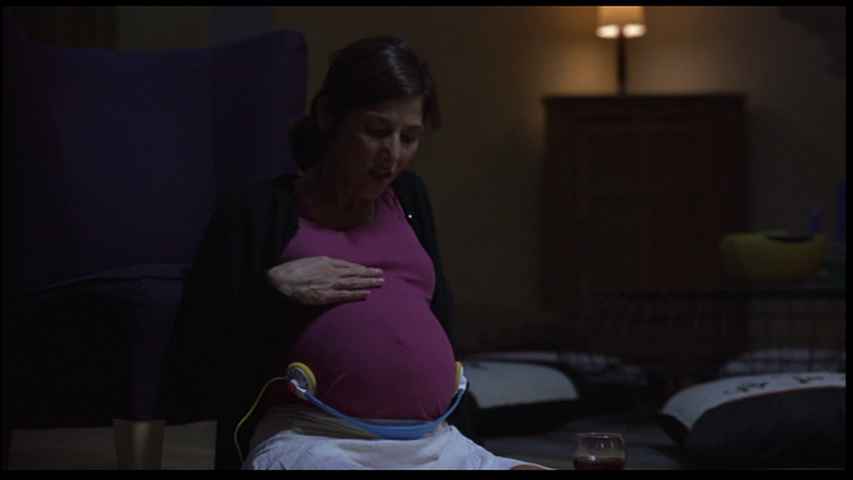
Abdominal/Uterine Massage is a gentle and tender massage (the opposite of a sports, or deep tissue massage) performed on your belly that can be done from the comfort of your home. As we mentioned, it increases blood flow and circulation to your growing abdomen, supporting relaxation while giving your body some much needed personal attention.
This form of massage is performed by numerous cultures around the world that favor natural approaches to childbirth, specifically in South America and Asia as well as increasingly in the U.S.
Abdominal Massage has a number of benefits:
Increasing blood flow to the placenta and uterus, which delivers nutrients to your baby.
Supporting good digestion and elimination through increased blood flow, which many women struggle with throughout pregnancy.
Reducing stress and promoting relaxation through the release of oxytocin (more on that next!).

The American Pregnancy Association outlines a number of additional benefits in a synopsis here.
Oxytocin: The Love HormonePerhaps the most amazing benefit of massaging your belly is that you stimulate the release of small doses of oxytocin, also known as the love hormone. This hormone is typically released during acts of appreciation, touch, massage, and emotional connection. When you massage your belly during pregnancy, you are actually bonding with your baby through an exchange of this amazing hormone!
Research performed by Developmental Neuroscientist Ruth Feldman, PhD, demonstrated that oxytocin levels in mothers throughout pregnancy actually predicted the quality of bonding between mother and child after birth! In addition, mothers with greater levels of oxytocin reported more behaviors that indicated a strong relationship with their baby.
Oxytocin also lowers stress hormones, like cortisol. We all experience stress, it’s unavoidable in life. Abdominal massage helps you and your baby to feel supported and loved during stressful times, setting you on a path to emotional balance.
Abdominal massage helps you and your baby to feel supported and loved during stressful times, setting you on a path to emotional balance.
And there’s actually an evolutionary component to all of this: women are inherently drawn to touching and rubbing their bellies in pregnancy. This helps the baby to learn the mother’s touch while deepening their emotional connection. Abdominal massage just formalizes this innate desire to deepen the benefits.
Simply put, acts of touch and massage whether between mother and child or two partners actually changes us in profound ways at the neurochemical level. They matter, not just emotionally, but physiologically.
Love Butter Belly BalmLove Butter Belly Balm is made with entirely organic plant-based ingredients. It is created to moisturize and deeply nourish your skin as your belly grows. It is an excellent lubricant for your hands while you perform abdominal massage. It is non-greasy and Increases blood flow to your belly and uterus, improving digestion, promoting relaxation and even reducing aches and pains.
“I'm so glad I found Wildish! Their products are so high quality. I've been loving the love butter so far (so has baby!) and am so happy to be supporting a small, mama-owned business!”
- Jenn ★★★★★
How to Perform Abdominal MassageAbdominal Massage is incredibly simple and can be performed in as little as five minutes. It can also be drawn out for even deeper benefits. We recommend it to our clients as an evening self-care ritual as the release of oxytocin promotes relaxation and restful sleep.
At the time of writing this, we pinned an Instagram Story to the Highlights section of our profile (@wearewildish), called “Massage”. If you prefer, you can watch this story as our co-founder Suzanne walks you through the various strokes. Or you can simply read on.
This massage can be performed in bed, on the couch, reclined on a chair or even on the floor – anywhere you feel comfortable.
Beginning: Place both of your hands on your belly and lovingly greet your baby.
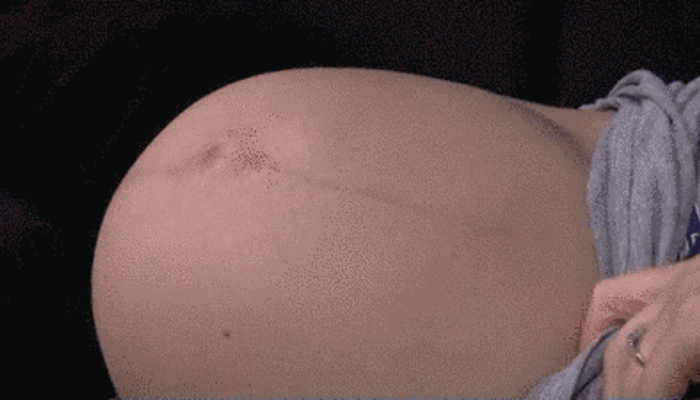 We recommend spreading a lubricant or moisturizer around your belly to nourish the skin and help smooth the movements of your hands during the massage. Our Love Butter Belly Balm is our favorite, for its organic, entirely plant-based ingredients that deeply nourish the skin without leaving a greasy feeling.
We recommend spreading a lubricant or moisturizer around your belly to nourish the skin and help smooth the movements of your hands during the massage. Our Love Butter Belly Balm is our favorite, for its organic, entirely plant-based ingredients that deeply nourish the skin without leaving a greasy feeling. Big Circular Strokes: Using both hands, gently make large clockwise circles around your belly. We always use clockwise motions because this aligns with the directional flow of the digestive organs in the abdomen. You may feel these organs relax as you perform the massage.
Small Circular Strokes: Next, using your fingers, make small circles around your belly button, while, again, moving in a clockwise motion.
Upward Lifting Strokes: Starting from your pubic bone, with both hands, make gentle upward lifting strokes towards your belly button.
Downward Pulling Strokes: Starting from your sternum where your rib cage meets, with both hands, make gentle downward pulling strokes towards your belly button.
 This is the opposite motion of the previous stroke.
This is the opposite motion of the previous stroke.Diagonal Pulling Strokes: Make these same motions with both hands but from diagonal directions from the sides of your rib cage towards your belly button and up from your hip bones towards your belly button. If your belly was a clock with your ribs up at 12 o’clock, then your hands would begin at 1:30, 4:30, 7:30 and 10:30 all moving towards the center.
Horizontal Pulling Strokes: Now make these same pulling strokes with both hands from the sides of your belly towards the middle (3:00 and 9:00).
Repeat: Complete the strokes as many times as you would like, focusing on the ones that feel the best. As long as you are doing the massage in a gentle and loving manner, you and your baby will experience the benefits.
If you massage regularly your baby will recognize the strokes and may respond by meeting your touch. This is obviously an amazing experience, feeling present with one another during pregnancy.
This is obviously an amazing experience, feeling present with one another during pregnancy.
To support deeper connection, consider talking to your baby during the massage, letting them know how you will take care of them and protect them when they arrive.
If your partner wants to give the massage, the baby will learn their touch as well, as they know the difference in the energy of the people who touch them. Partners can bond and connect with the baby before the birth, making the massage ritual something that connects both parties to the baby.
We’ve been performing a more in-depth version of this abdominal massage on prenatal clients for many years. We also use a variation of it with women who are experiencing challenges with fertility as it increases blood flow to the reproductive organs. If you have any questions, please don’t hesitate to reach out ([email protected]).
Itching of the abdomen during pregnancy
Does it itch during pregnancy? This is a common complaint of so many women in position. Moreover, not only the stomach can itch, but also other places. Sometimes this itching is so unbearable that it interferes with normal sleep.
Moreover, not only the stomach can itch, but also other places. Sometimes this itching is so unbearable that it interferes with normal sleep.
Let's find out what causes this itch and what can be done about it.
During pregnancy, a woman's body undergoes strong changes both on the physical plane - an increase in the breast and abdomen, and on the hormonal plane. All this will certainly affect the condition of the skin. On the one hand, it is mechanically stretched by the uterus growing inside (or “waking up” mammary glands, if we are talking about breasts). On the other hand, “pregnant” hormones negatively affect the production of elastin and collagen, which are responsible for skin firmness and elasticity. It becomes dry, prone to peeling, loses its ability to stretch without consequences. Paradoxical, but true. The skin has to stretch, and the production of substances responsible for "painless" stretching is reduced. The cells do not withstand, and as a result, we observe small stripes - stretch marks or striae.
Note that itching of the skin of the abdomen and the appearance of stretch marks are two completely different processes, and the presence of itching does not at all mean that stretch marks will appear soon, just as the appearance of stretch marks is not always preceded by itching.
During pregnancy, a woman's body actively stores fat, because it contains a storehouse of useful substances for future milk. This process is completely normal and physiologically determined. And if a woman was very thin before pregnancy, then the resulting fat can “stretch” her skin in completely different places. That is why, in addition to the abdomen and chest, the hips can itch, especially the inner side, sides, buttocks, and sometimes even the shoulders and forearms.
So, let's look at the main reasons why the skin of the abdomen itches during pregnancy, and think about what can be done about it.
1. The most common cause of abdominal itching during pregnancy is a very rapid increase in the uterus and other parts of the body, in which the skin does not have time to adjust and stretch without consequences. In this case, to relieve itching, and at the same time to some extent prevent the appearance of stretch marks, timely moisturizing and massage of the skin will help. Eliminate the use of shower gel and soap, cleanse the skin with plain water. Massage can be performed in the shower with a medium-hard washcloth, or you can use a soft brush for dry massage. It is important that all these procedures should bring only pleasant sensations, there should be no pain. Moisturize your skin with olive oil. This natural product has proven itself hundreds of years ago. Some women find it helpful to use talc-based baby powder. Choose one that is fragrance-free. There are also specialized creams for stretch marks, but their effectiveness has not been proven. In women who used them during pregnancy, stretch marks appeared with the same frequency as in those who did not use them.
In this case, to relieve itching, and at the same time to some extent prevent the appearance of stretch marks, timely moisturizing and massage of the skin will help. Eliminate the use of shower gel and soap, cleanse the skin with plain water. Massage can be performed in the shower with a medium-hard washcloth, or you can use a soft brush for dry massage. It is important that all these procedures should bring only pleasant sensations, there should be no pain. Moisturize your skin with olive oil. This natural product has proven itself hundreds of years ago. Some women find it helpful to use talc-based baby powder. Choose one that is fragrance-free. There are also specialized creams for stretch marks, but their effectiveness has not been proven. In women who used them during pregnancy, stretch marks appeared with the same frequency as in those who did not use them.
2. The next cause of abdominal itching during pregnancy is mechanical irritation. This includes a reaction to washing powders and fabric softeners; tight, tight clothing; synthetic, non-breathable fabrics. Choose for washing only the most natural and environmentally friendly products. Choose clothes according to size, and preferably loose. Avoid overheating - sweat begins to irritate the already delicate skin, causing additional discomfort. For the same reason, preference should be given to clothing and underwear made from natural fabrics that can pass air and moisture.
Choose for washing only the most natural and environmentally friendly products. Choose clothes according to size, and preferably loose. Avoid overheating - sweat begins to irritate the already delicate skin, causing additional discomfort. For the same reason, preference should be given to clothing and underwear made from natural fabrics that can pass air and moisture.
Delicate, loose-fitting maternity and nursing shirt will not disturb sensitive skin. Article 1-NMP 17502
Thin, pleasant to the body cotton shirt for pregnant women and lactating women. Article 1-NMP 07501
Comfortable shirt for pregnant and lactating women with a secret for feeding. Article 1-NMP 23901
3. Another non-obvious cause of itching that can occur during pregnancy is an allergy. Even if a woman was not allergic before pregnancy, this reason should not be excluded from the list of possible ones. In this case, it is important not only to change all washing and detergents to environmentally friendly, and clothes and linen to cotton or linen, but also to minimize the use of cosmetics, creams and other skin care products. Itching can be a reaction even to those remedies that a woman used without consequences before pregnancy. Also, delay eating exotic fruits and foods, because food allergies can also cause itching.
In this case, it is important not only to change all washing and detergents to environmentally friendly, and clothes and linen to cotton or linen, but also to minimize the use of cosmetics, creams and other skin care products. Itching can be a reaction even to those remedies that a woman used without consequences before pregnancy. Also, delay eating exotic fruits and foods, because food allergies can also cause itching.
4. The most unpleasant and dangerous cause of abdominal itching during pregnancy is diseases of the internal organs, in particular, the liver. If itching is not limited to places that increase due to pregnancy, especially if the back, hands and feet itch regularly and quite noticeably, you should immediately consult a doctor to exclude such unpleasant diseases as pancreatitis, hepatitis, preeclampsia, cholecystitis and cholestasis.
No matter for what reason your stomach itches, there are general rules that are useful for every pregnant woman to follow in order to maximize her health and well-being, and so that the baby grows up as healthy as possible.
The first thing you should pay close attention to is the nutrition and drinking regimen of a pregnant woman. The condition of the skin directly depends on how healthy the woman's body is as a whole. And any skin manifestations, whether it be acne, blackheads, excessive oiliness of the skin or its dryness, are regulated by nutrition. No need to start using acne remedies, because with the help of rashes, the body gets rid of something unnecessary. Better regulate your diet by eliminating all refined foods (in particular, white flour and sugar), and increase your intake of pure water, and then you will see how the skin clears itself. Foods rich in vitamins A and E will give the skin more elasticity and reduce itching. Raw carrot salad with an apple is a storehouse of nutrients for a future mother. Raw vegetables are not only rich in vitamins and minerals, they cleanse the intestines well and regulate stools, which is very important during pregnancy.
The second is physical activity and sleep. How active a pregnant woman leads a lifestyle directly affects her metabolism, which means her health in general, which will certainly affect her well-being. Light physical activity every day, walks, fresh air and sunbathing in moderation have a very beneficial effect. The expectant mother needs to sleep in sufficient quantities, and the sleeping room must be ventilated. It is best to sleep with the window ajar, even in winter. To have a constant supply of oxygen. Being in a stuffy room provokes many health problems: the quality of sleep decreases, fatigue and fatigue appear.
How active a pregnant woman leads a lifestyle directly affects her metabolism, which means her health in general, which will certainly affect her well-being. Light physical activity every day, walks, fresh air and sunbathing in moderation have a very beneficial effect. The expectant mother needs to sleep in sufficient quantities, and the sleeping room must be ventilated. It is best to sleep with the window ajar, even in winter. To have a constant supply of oxygen. Being in a stuffy room provokes many health problems: the quality of sleep decreases, fatigue and fatigue appear.
Comfortable maternity and breastfeeding tank top gently holds the breast without squeezing it. Article 1-NMP 09702
Nursing bra makes breastfeeding easy. Article 1-НМ 9733
T-shirt for pregnant women and nursing mothers made of cotton perfectly passes air and absorbs excess moisture. Article 1-NMP 22002
Article 1-NMP 22002
The third is the exclusion from use of non-ecological detergents, cleaning products, as well as soaps, shampoos, deodorants, cosmetics, creams, air fresheners and everything that a pregnant woman has contact with. Studies were conducted on cord blood taken from newborns, and substances from household chemicals and cosmetics used by a pregnant woman were found in it. These studies prove that the uteroplacental barrier is not as "strong" as some people think. And that it is very important for the expectant mother to ensure that contact with any kind of non-environmentally friendly means in everyday life is minimized, which will help prevent possible health problems in the child in the future. Separately, it is worth noting the harm from hair dyes and nail polishes, mainly from inhalation of their vapors.
The fourth thing worth paying attention to is skin care, including the belly and chest. Arrange more often water procedures, contrast douches, ice massage. Pregnancy is a very favorable time to switch from chemical skin care products to natural ones. Oils - olive, almond, avocado and others - are indispensable helpers in skin care. Infusions of medicinal herbs - chamomile, string, birch leaves, sage - have also proven themselves well. You can wipe the skin with them, or you can freeze them, so that later you can use ice cubes with medicinal herbs.
Pregnancy is a very favorable time to switch from chemical skin care products to natural ones. Oils - olive, almond, avocado and others - are indispensable helpers in skin care. Infusions of medicinal herbs - chamomile, string, birch leaves, sage - have also proven themselves well. You can wipe the skin with them, or you can freeze them, so that later you can use ice cubes with medicinal herbs.
Monthly weight gain during pregnancy
Get more rest, take care of yourself, let your food and products that you use be as useful or at least harmless as possible.
Why does the skin itch during pregnancy?
Skin itching during pregnancy is not a very common phenomenon. Most often, the skin begins to itch unbearably (as after mosquito bites) in the evening, closer to night, which can provoke insomnia and generally worsen a woman’s mood. Usually itching does not harm the baby and goes away after childbirth. However, it is still worth consulting with a gynecologist and dermatologist.
What does it come from?
The cause of itching during pregnancy in most cases is a violation of the liver: the production and outflow of bile, a general increase in the level of bilirubin in the blood. This is due to a hormonal failure in the body of the future mother - a violation of the synthesis of estrogens, as well as due to fetal pressure on the bile ducts. The fatty acids produced in large quantities enter the woman's skin with the bloodstream and irritate the nerve endings, causing excruciating itching. Similar phenomena associated with stagnation of bile in the body can make themselves felt in the third trimester of pregnancy. Sometimes itching is accompanied by such dangerous diseases as diabetes mellitus.
Who is predisposed?
Itching during pregnancy is usually observed in women with chronic diseases of the biliary tract and with high levels of cholesterol in the blood. Such future mothers need to regularly (at least once a month) do a biochemical blood test to exclude toxic effects on liver cells.
How to fight?
A pregnant woman should tell her gynecologist about the discomfort associated with skin itching. In some cases, itching can be a sign of the development of such a dangerous disease as hepatitis. The doctor will conduct appropriate examinations. If, according to an objective examination, itching does not pose any danger, it is often possible to get rid of discomfort simply by following a diet aimed at lowering cholesterol levels, limiting the intake of fatty, spicy and salty foods that prevent the liver from coping with the function of bile secretion, as well as drinking plenty of water - it is necessary to eliminate dry skin. If the diet does not help, the doctor may prescribe choleretic drugs suitable for pregnant women.
It is important to find the cause of the bothersome itching, eliminating a whole group of skin diseases that can occur during pregnancy.
Itching in the abdomen and chest
This itch is worth mentioning separately.



